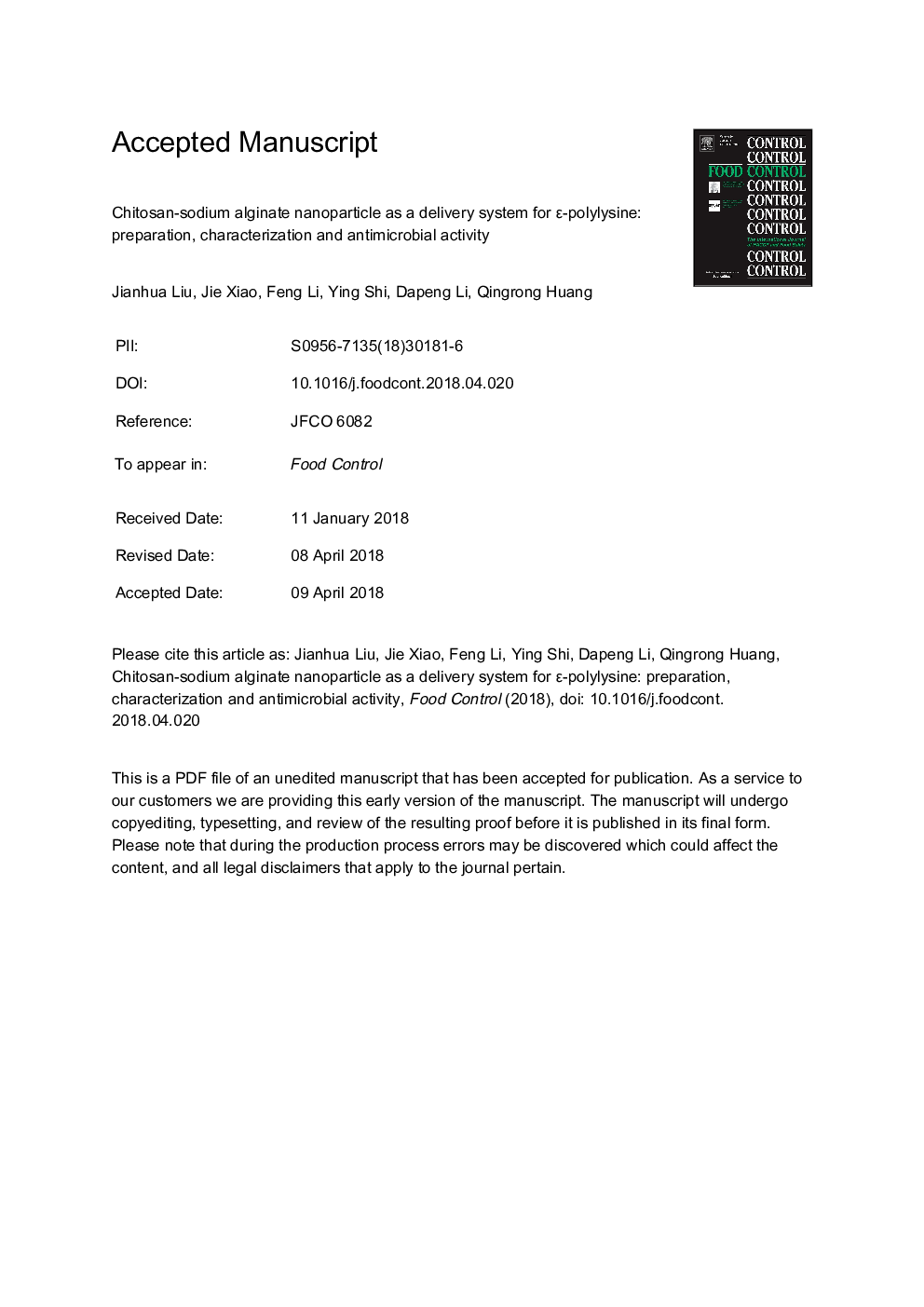| Article ID | Journal | Published Year | Pages | File Type |
|---|---|---|---|---|
| 8887913 | Food Control | 2018 | 40 Pages |
Abstract
ε-Polylysine-loaded chitosan-sodium alginate nanoparticles (ε-PL NPs) were synthesized and characterized in terms of particle size distribution, surface morphology, thermal properties and structure, respectively. Their antibacterial activity on Escherichia coli, Bacillus subtilis, Staphylococcus aureus and Micrococcus luteus were studied. The ε-PL NPs were well dispersed as spherical particles within the range of 200-500â¯nm. In vitro release studies showed an initial burst release of ε-PL from the nanoparticles followed by a sustained release. The minimum inhibitory concentrations (MIC) of ε-PL NPs against four test bacteria were 7.81â¯Î¼g/mL (E. coli), 31.25â¯Î¼g/mL (B. subtilis), 15.63â¯Î¼g/mL (S. aureus) and 38.67â¯Î¼g/mL (M. luteus), respectively. The bacteriostatic activity of ε-PL NPs was three times higher (Pâ¯<â¯0.05) than that of free ε-PL in terms of inhibition zone diameter, suggesting that ε-PL NPs has stronger antibacterial activity. These findings may provide some basis for the application of ε-PL NPs as a promising food preservative.
Related Topics
Life Sciences
Agricultural and Biological Sciences
Food Science
Authors
Jianhua Liu, Jie Xiao, Feng Li, Ying Shi, Dapeng Li, Qingrong Huang,
